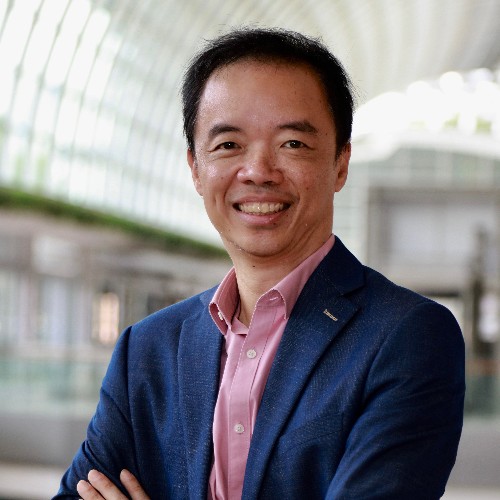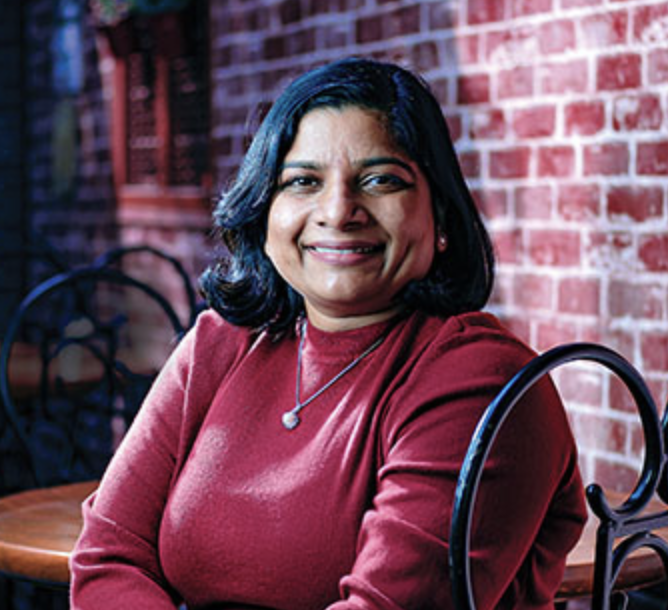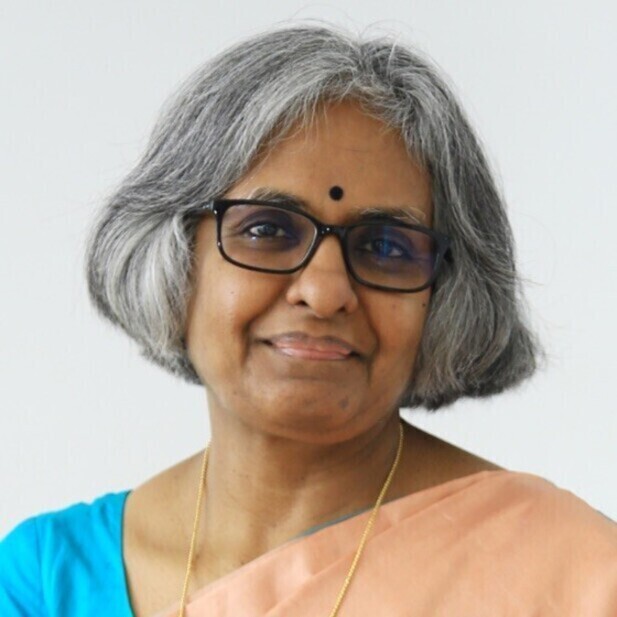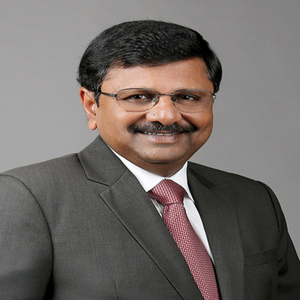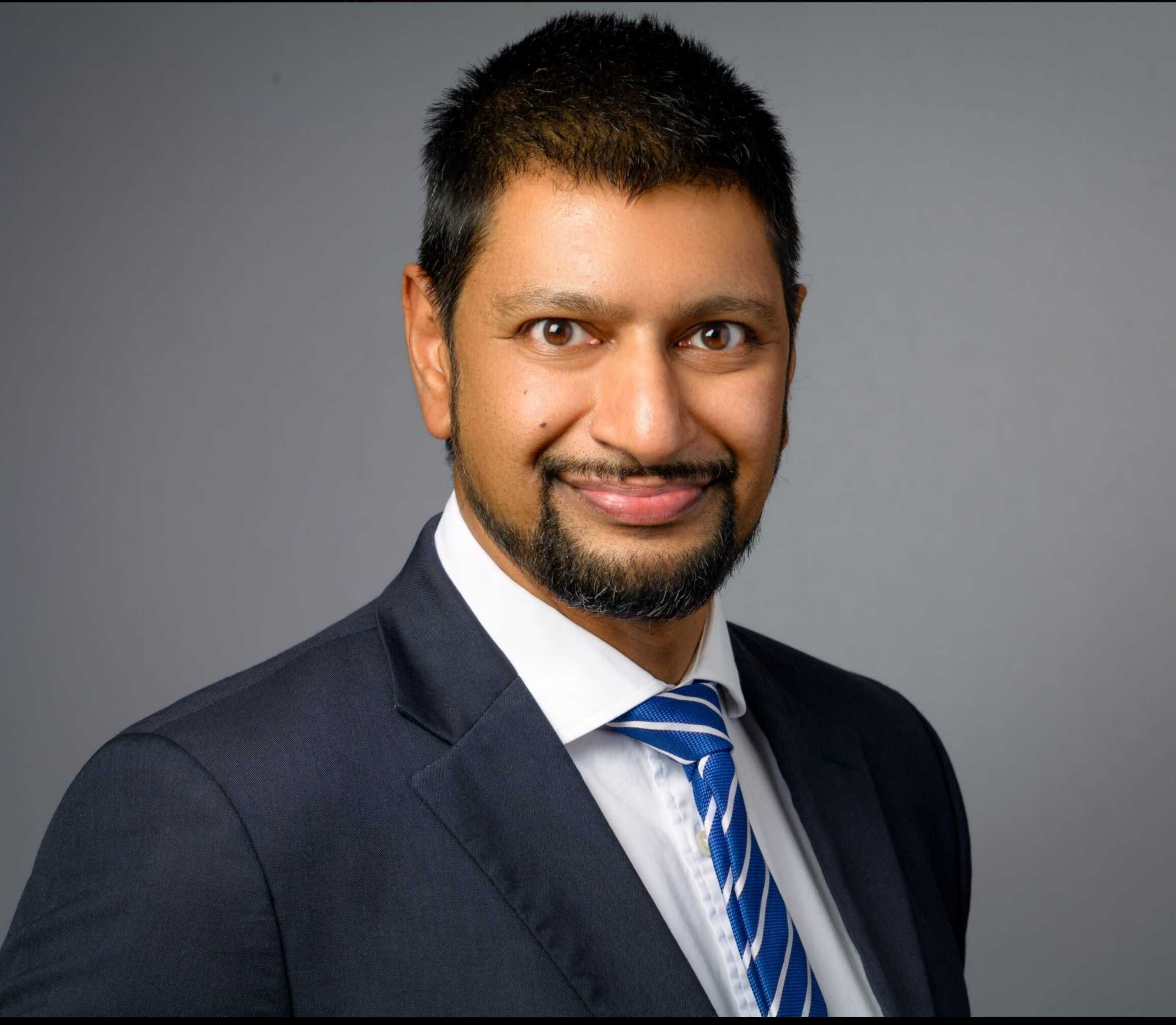In this episode of Nuclei's podcast, we are honored to host Dr. Dennis Khoo, a Digital Transformation Expert and the bestselling author of 'Driving Digital Transformation.' A pioneer in the ASEAN Digital Banking landscape, Dennis has been a trailblazer by conceptualizing and launching 'TMRW,' the first mobile-only Digital Bank in ASEAN. Beyond his accomplishments as a digital business leader, Dennis is a highly sought-after Corporate Coach, lending his expertise to numerous successful executives throughout his distinguished career.
Joining Mr. Ankur Joshi, CEO and founder of Nuclei, Dr. Dennis Khoo engages in an insightful dialogue, sharing his expertise, experiences, and unique insights into the realm of digital transformation.
--Transcript Begins--
Ankur Joshi:
Hello, everyone. I'm Ankur Joshi, the founder and CEO of Nuclei, a B2B fintech company based in India. We collaborate with banks, developing and integrating various products into the bank ecosystem to serve both retail and business customers. Currently, we work with 20+ banks across Southeast Asia, South Asia, and the Middle East. Today on this podcast, I'm delighted to welcome an author and a seasoned professional in financial services.
Dr. Dennis Khoo:
Thank you very much. It's a pleasure to be here. I appreciate the invitation, and I'm thrilled about our upcoming discussion.
Ankur Joshi:
Thank you, Dennis. So, before we delve into your career, I'd like to go back and explore your formative years—your upbringing, family background, education, and any events that shaped your principles and values. Can you share some insights?
Dr. Dennis Khoo:
Okay, that's an interesting starting point. You know, I grew up during the growth phase of Singapore. I was born here in 1963. So, in 1963, Singapore was a completely different place. And I guess I'm very fortunate in that generation that has really seen Singapore transformed over those years. My family was a lower-income family. We lived in a government HDB flat here. I don't think we were very well-to-do. I didn't take a plane until I was 25, compared to my children who have been on a plane since, I don't know, when they were babies. So, a small family with me and my sister. Tracing back to values, I can't honestly pinpoint what were the things from my childhood that formed my value system, but I do have a pretty strong value system.
I believe that there's a right way to do things and a wrong way to do things. I can be very stubborn about what I think is the wrong way and the things we should not do because they damage trust, integrity, and some of them are just outright unprofessional, things that I think are totally unfair to individuals or groups of people. So, I have always, I guess, been very obstinate about doing things the right way.
Ankur Joshi:
That's insightful. You mentioned your early years in a lower-middle-class family. Moving forward, what led you to pursue engineering during that period?
Dr. Dennis Khoo:
Singapore needed engineers. Okay, so when I was ready to go into university, this was back in 1988, engineering was the thing to do, frankly. As a child, I was more interested in physics, but physics was all about maths, and you have to be very good at maths to do physics. My math skills, I don't think, were that good, and I wasn't that interested in mathematics. So, I think engineering was the next closest thing. I don't think I got much advice in terms of careers, the way we give our children advice today; it wasn't the kind of advice I got.
It was kind of, you know, everybody was doing in pre-university. I think it was double maths and it was Physics and Chemistry, so I guess it was quite a normal route, you know, from there to go into engineering. I couldn't do physics and engineering.
Ankur Joshi:
Having transitioned from engineering, you later pursued business management degrees. Your career uniquely spans both banking and technology—an intersection not commonly found in the industry. What prompted this convergence, providing you a distinct perspective?
Dr. Dennis Khoo:
Yeah, frankly, the answer is much simpler than you probably expect. Before I interned at Hewlett Packard, I think it was my second or third year, they hired me as a hardware engineer. I received a job offer before I graduated. HP was then the originator of Silicon Valley, a great company that provided me with travel opportunities. Back then, a 25-megabyte hard disk was the size of a washing machine, and my journey at HP began in hardware, progressing to operating systems when I was involved in setting up the networking business.
I never envisioned doing something outside of technology. However, after 13 years at HP, during a period of disarray, I had a brief stint in a software company specializing in content management software, coinciding with the bursting of the internet bubble. I was there for only nine months when I received a call from Standard Chartered Bank. The reason behind my move to banking was a belief that bankers earned more than engineers. Despite the somewhat perplexing nature of the comparison—where bankers don't actually create anything, acting as intermediaries, unlike engineers who do create—I found that, as your career progresses, bankers are generally paid better, consideration for someone not from a wealthy background. It's not a glamorous story; the opportunity presented itself, and I took it. It wasn't planned, as most of my career has been.
Ankur Joshi:
Let's shift to your role at TMRW. Before we delve into that, could you reflect on how your dual perspective, bridging business and technology, played a role in your leadership at TMRW?
Dr. Dennis Khoo:
I think what you mentioned earlier about the confluence of two different domains—information technology and banking—is quite significant. This part has an interesting story beyond the surface. I started writing C++ code when I joined HP, and surprisingly, as I researched for my first book, I found that it's still the sixth most used software programming language in the world, even after more than 30 years. With a degree in computer engineering, I have a deep understanding of computers. Additionally, I've been involved in every retail role and product within the retail bank.
Upon joining Standard Chartered Bank as the head of marketing, I transitioned to analytics. Subsequently, I led wealth management, encompassing insurance, investments, and deposits. Standard Chartered was great in shaping a well-rounded professional, a crucial aspect for anyone leading a significant transformation today. Despite my reluctance to term it as a digital transformation, the term has stuck. Essentially, leading a business transformation involves technology, and today, everything involves technology. It requires a broad perspective, a missing element that makes managing such transformations even more challenging.
After wealth management, I oversaw lending, credit cards, personal loans, mortgages, and deposits, later heading retail banking in Singapore and Malaysia. Eventually, I became a consumer head, with direct control over retail and oversight of SME banking and private banking—a complex business indeed. Over the years, I pursued an MBA and a Ph.D. in international business, making me more comprehensive than most in understanding how technology and business intersect.
Despite my extensive preparation, leading TMRW's transformation proved to be a significant challenge. In incumbent companies, where complexity is inherent, we had 12 streams of work and introduced nearly 500 new features. In banking, there's no concept of a minimum viable product; it either works or it doesn't. We wrote almost a million lines of code, a considerable undertaking. Differentiating banking is akin to differentiating electricity—continuous existence defines its value. It was, without a doubt, the most challenging initiative in my career.
Ankur Joshi:
So, Dennis, having a background in both technology and business played a significant role in your leadership at TMRW, right? That led you to play a crucial role in leading TMRW.
But let's rewind to the early days at TMRW. I'm certain, being one of the first digital banks in the region, there was immense pressure on you to ensure its success, right? Yet, you took a very different approach. Instead of the conventional route of engaging management consultants to bring in business models, canvas strategies, and oversee implementation, you opted for a distinctly different approach.
Your approach stands out, and I find it to be exceptionally brave and courageous.
Dr. Dennis Khoo:
Success is stubborn. We are more stubborn than courageous.
Ankur Joshi:
I find it to be courageous. Why? Because at that point in time, the success still lies with the team. But if it had failed, the failure would have rested at your feet, and that takes an immense amount of courage to then go ahead and make a decision that has not been heard in the market before. More than why you took that approach, I want to first understand what gave you that courage. Why did you have so much confidence in yourself to do something different? What was the cause of that courage? How did you gather that courage?
Dr. Dennis Khoo:
Well, I didn't look at it that way. I saw it as I owed the people that I attracted to the jobs. They left good jobs. I owed them a responsibility to do what's right, to do what makes business sense, and also to do right by them. Therefore, I didn't see it as being brave; I saw it as doing what's right and what makes sense. I think I received very good support and advice from our group CEO, Mr. Lee Chong. His advice to me was, "Dennis, we are not going to be the first in the world to launch a digital bank. Take the time, design it, build something that can really stand the test of time." That was very good advice.
Nowadays, we live in a world of sound bites where everyone wants everything instantly, spending a lot of money. One of the biggest reasons for failure in most transformations is the lack of trade-offs. So, we took our time, almost nine months, to design it. In that time, we benchmarked, asked fundamental questions, and focused on the right things. We eventually got a design that even today, colleagues tell me is one of a kind, something other people would want to understand how to copy.
Ankur Joshi:
You spoke about trade-offs being difficult, right? Prioritization of trade-offs is more or less the same thing. That has a lot to do with the culture. I think the ability to prioritize one thing over the other requires the right set of culture within the team, and that essentially comes from the top, meaning in TMRW, from you.
How did you manage? Because most people working on TMRW might be coming from a very different culture. To enable them to have the freedom to make proper decisions with respect to trade-offs, prioritization requires them to have that freedom, requires them to have your trust in place.
Can you talk about a few events where you were able to drive that point through, that we have to take the right decisions, we have to prioritize properly? Not everything is equally important. We have to trade off and think from the first principles. If you can give us some examples or talk about a few events, that would be helpful.
Dr. Dennis Khoo:
It's a very simple and powerful question, but actually, it's very hard to achieve because everybody thinks they're right; nobody thinks they're wrong. Therefore, especially when you're doing things that have never been done before, sometimes the question of opinion and who is the loudest might win the day. So, you've got to get many things right. First, your narrative has to be very clear about what we're really doing. One of the things we picked as the vision of what we're doing is to build the world's most proactive digital bank. You've got to get the rest of the narrative— who are you serving, what is your purpose, what are the values? Therefore, we also define the values and behaviors.
Culture is simply values plus behavior. Many people define the values and behaviors but don't then look out and reinforce the right behaviors and tell individuals who are behaving in the wrong way to stop it. That culture piece is important because it sets the pace, and there is intense debate. I can give a very simple example—deciding should we include all of the bank's products or just the products that we were introducing in TMRW. That was a tough decision. The other thing people have wrong is that if you want to empower people, then you don't get to make decisions, you leave it to them, right? That's totally not the case because you need to understand your business first. If your business is an experiential model, where you can't really do one or two big things but string together 20-30 small things, it must be coordinated. Coordination is more important than breakthrough because if you have a breakthrough that's uncoordinated, it becomes a mess in the experience. That makes it even more difficult because you can't have innovation bubbling up like in a different situation where you're looking at one breakthrough.
Building a digital bank—there's no one big thing you can do; it's 20 things, 20 small things that you assemble, paying attention to detail. It's like how Apple brings their hardware, software, and firmware together in the iMac. They are simply personal computers. But why do they gel so well together most of the time? The reason is the obsession with detail. Many viewers will probably know the story, whether true or not, exemplifying the obsessiveness of Apple's founder—he wants the chips in the circuit board to be straight, even though the engineers say no one can see it. But he's saying, "I can see it." So, it needs a kind of obsession because you're not doing one or two big things, and that makes it even more difficult. You are in a situation where you have to debate things; it's not just delegating everything because if you delegate everything, who's going to coordinate and ensure that the end experience is good? Someone could be in a position to be the chief experience designer. That forms a critical piece. So many things come together—one is breaking down the hierarchy. One of the rules I applied was to encourage everybody to ask why. The most junior person who just joined can go into the meeting and say, "Why are we doing it this way?" If someone asks why, the most senior person in the room has to help find the answer or say, "We don't know, but we'll find out if it's something important." It's difficult to do because you want that debate and discourse, which means meetings can go on, but if you have too many people bringing up very minor points, the meeting goes all over the place, and you've got to control that. At the same time, you've got to coordinate across 12 streams of work, so you have many people in the meeting.
I remember people complaining that the meetings were too long and had too many people. My retort was, "If we don't have these meetings, how does anybody know what's going on and understand the big picture of what we're trying to do?" It's a massive coordination exercise where you need to ensure clarity of what you're doing and what you're not doing. That clarity is like tuning an analog TV—it gets fuzzy, then it gets clear, goes back and forth. I remember the team's frustration, telling me this is the last time we talk about this subject. Back to what I was saying—do we include all the bank's products or just the new things we were doing? That was a long debate and a very important discussion because not doing it would make the engineering a lot simpler, but not doing it also is a problem because it wasn't a separate license. It was the same license, which means you have an obligation to show a customer his total debt obligations. Simple things like that had to be debated because for some reason, it's now called Bezos metrics.
Jeff Bezos put it in one of his shareholder letters. It's basically if you have decisions that are once made, very hard to reverse and have a very large impact, you need to spend a lot of time on it. This was one of them, a very minor detail—include everything or not. People got it wrong, thinking just leave it, delegate, empower. It's not going to work in a case where you need a lot of coordination and in situations where it's irreversible, high impact. Then you need to spend time, make the right decisions. I bring up another interesting analogy— for a lot of the companies I talked to, if you're going to build a building, you don't just go up to the building and say, "The current tallest building is 100 stories, so I want 102 stories." It's concrete, doors, windows, staircases, elevators, plumbing. Nobody does that, so why are we doing that in most of our transformation? Telling technology to build something without really knowing what we want is a disaster. It's equally a disaster now outside of buildings. It is, in fact, a colossal coordination task. Finally, when I completed it, I realized why most transformations are not going to work and hence created what is now called the All Digital Future Playbook to attempt to help companies because without some method, your success is very, very poor.
Ankur Joshi:
Let's delve deeper into the digital playbook, right? Why was it developed, and how do you think it impacts organizations undergoing digital transformation? It's not limited to banks; it applies to any organization in a digital transformation. So, let's understand this playbook.
Dr. Dennis Khoo:
So, I left UOB in the middle of 2022, having participated in the consultant bidding for one of the digital bank licenses that Singapore was awarding.
Unfortunately, we didn't win. They awarded two licenses instead of three, so perhaps with the third license, we might have been in the game. Then, at the end of 2020, I had to decide whether to return to an executive role. I felt that I should encapsulate my learnings from building TMRW between 2017 and 2020.
I wrote "Driving Digital Transformation: Lessons from Building the First Digital Bank," encapsulating our experiences, good decisions, and reflections on what could have been done differently. In the process, I developed a method, discussed in Chapter Five of the book, addressing the coordination challenges faced without the luxury of schematics and building materials, typical in construction.
Collaborating with my colleague, we compiled our 60 years of combined experience into the "All Digital Future Playbook." Recognizing the shortcomings of traditional approaches like the business model canvas, we emphasized the four critical dimensions: customers, business capabilities, people, and leadership. This holistic playbook aims to enhance the success rates of business transformations, focusing on problem-solving before implementing technologies like AI.
The iterative nature of business transformation today requires constant interoperation between customers, business capabilities, people, and leadership. The playbook addresses the complexities of differentiation, scalability, and the evolving competitive landscape, aiming to make transformations an everyday norm rather than a one-time project.
Additionally, we've initiated a program with the National University of Singapore to train individuals on this methodology, contributing to successful and sustainable business transformations while minimizing environmental impact.
Ankur Joshi:
That's amazing, and I wish you the best with that. Returning to TMRW by UB, the NPS stands out as a key aspect. The overall customer experience and the flywheel you discuss—acquiring, transacting, capturing data, deriving insights, and engaging with customers—contributed to the app's success. Can you share more about the flywheel, how it was built, and any challenges faced during its development?
Dr. Dennis Khoo:
It's a great question. To me, it mainly brings up the fact that a digital bank is not just about digital; it's about using digital tools to enable a great experience at lower and lower costs. The measure must focus on advocacy, even though advocacy itself doesn't directly generate revenue. That's why Customer Business Proposition (CBP) and the business model must align. From the beginning, our strategy was centered around acquiring customers with high lifetime value, targeting young professionals for their potential long-term value.
We recognized the importance of bundling products from the start, not selling them individually. The emphasis was not only on the Net Promoter Score (NPS) but also on aligning it with the right business model. Without a high NPS or similar advocacy measures, reducing the cost to acquire and serve customers becomes challenging as you scale up. Achieving a positive marginal contribution and profitability becomes unattainable.
In the banking industry, the focus on short-term gains often leads to misguided actions, such as acquiring a large customer base with a low activity rate. This approach is unsustainable as it incurs costs without generating meaningful revenue. The emphasis was on maintaining a high active rate, challenging the conventional norms of the industry.
Our early days in 2017 were pivotal, primarily focused on design. Unlike other sectors where a single feature could drive differentiation, banking required a comprehensive approach. The methodology involved understanding how all elements come together to create a unique proposition. Refusing to allow the team to price products at a premium, we aimed to be number three in the market, prioritizing experience over immediate profitability.
Data emerged as a crucial component in personalization, learning, and improving the overall customer experience. The concept of the flywheel, though stumbled upon, became integral to the strategy. Keeping customers active and transacting, using data to enhance the experience, and iterating on the proposition became key. The challenge lay in describing a proposition that wasn't easily defined, unlike breakthrough quadrant products.
Despite industry norms, the strategy focused on achieving high customer satisfaction. The proposition aimed to create a transacting onboarding and credit-granting experience that redefined banking. The intense attention to detail, akin to Apple's approach, was crucial in differentiating ourselves. It required a dedication to process and service, addressing the often overlooked but fundamental aspects of banking operations.
Innovations like shifting customer service interactions to chat were bold moves. Understanding that initially, the chatbot would be limited, we designed a fast escalation process to human agents. Over time, the learning curve improved exponentially, making the chatbot an integral part of our customer service strategy, handling approximately 95% of interactions effectively.
Ankur Joshi:
This is something you mentioned earlier about requiring a long-term vision. With a short-term perspective, implementing such provisions wouldn't be feasible. You acknowledged that, instead of courage, you considered it the right approach. Having a long-term mindset when implementing a new project like this demands courage because short-term gains or returns aren't immediate.
Dr. Dennis Khoo:
So, I can better use that money, and this is a leap of faith. People came to tell me it's a leap of faith, the NPS, a leap of faith. However, it's a failure to understand the fundamentals. It's not just about NPS; if you don't engage in lending, you won't make money. It's a complicated process of piecing together a jigsaw puzzle without a method, like assembling a 50,000-piece puzzle without a cover. Many push for shorter-term results, but for something transformative to withstand time, resistance to immediate gratification is crucial.
Ankur Joshi:
I appreciate your perspective, emphasizing that it's not just courage but doing the right thing that requires courage. It has been an insightful conversation, and I'm grateful for the opportunity to speak with you. Thank you.
Dr. Dennis Khoo:
I think the kindest thing someone has done for me is believing in the vision. Even if not 100% confident, trusting what is being said and taking the leap of faith, asking questions along the way but assuming it's the right thing for now. Building TMRW by You'll Be required the trust of many who took that leap of faith, acknowledging unanswered questions but believing in the long-term sense.
Ankur Joshi:
Thank you so much for being on the podcast, Dennis. I enjoyed our conversation and look forward to meeting you. Have a great day ahead.
Dr. Dennis Khoo:
Thank you so much, Ankur. Have a great day ahead.
--Transcript Ends--
